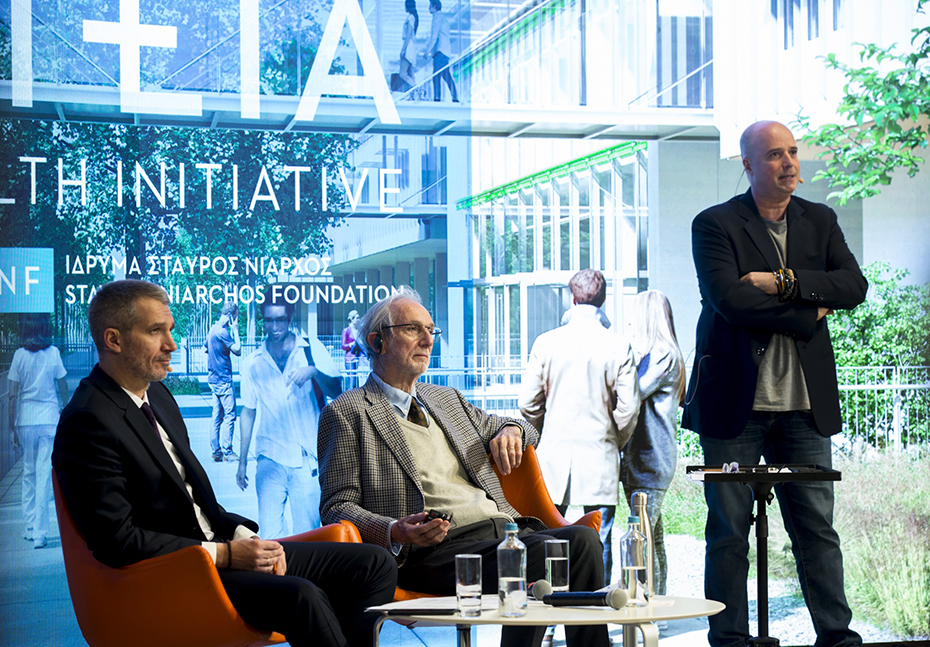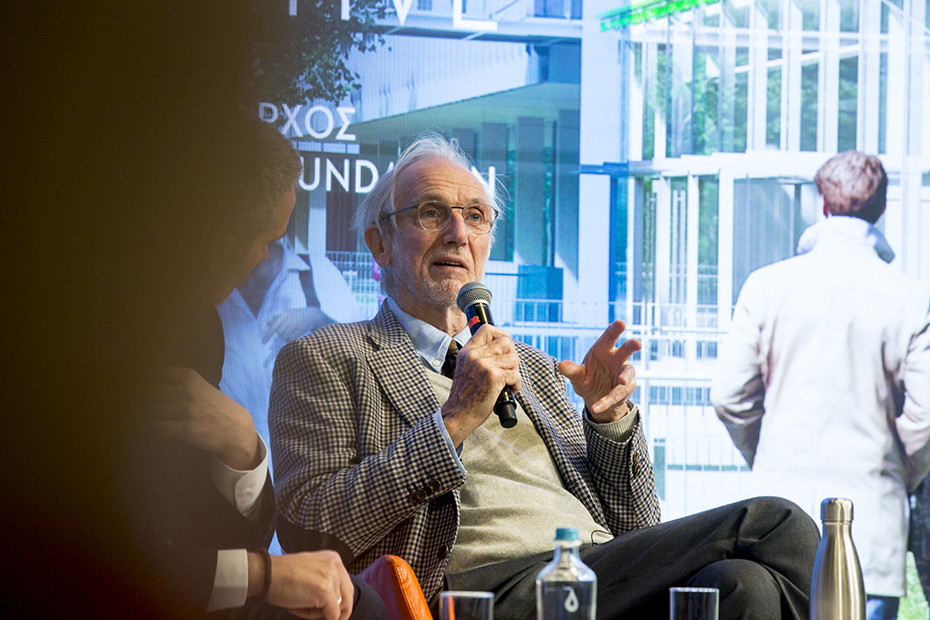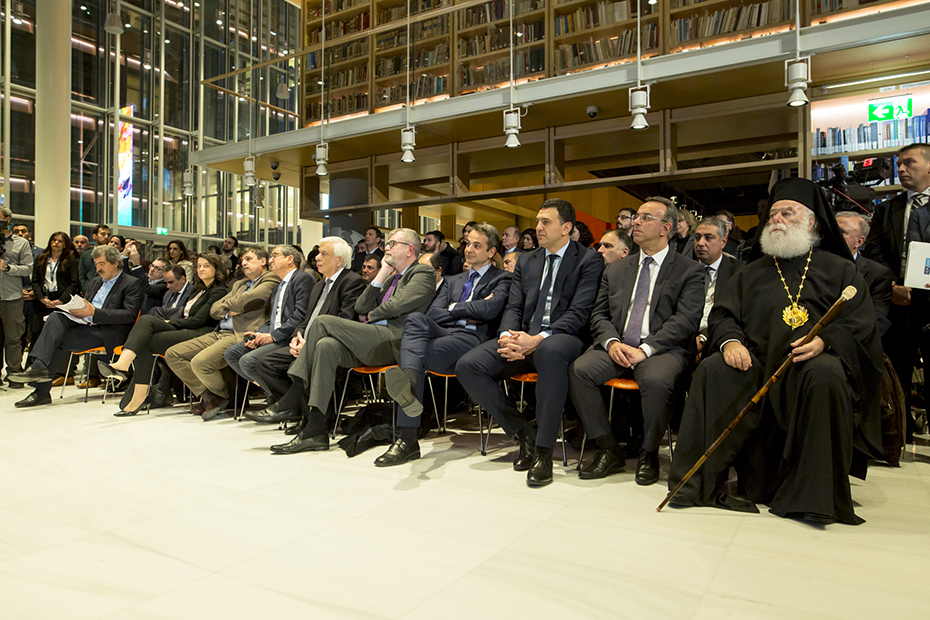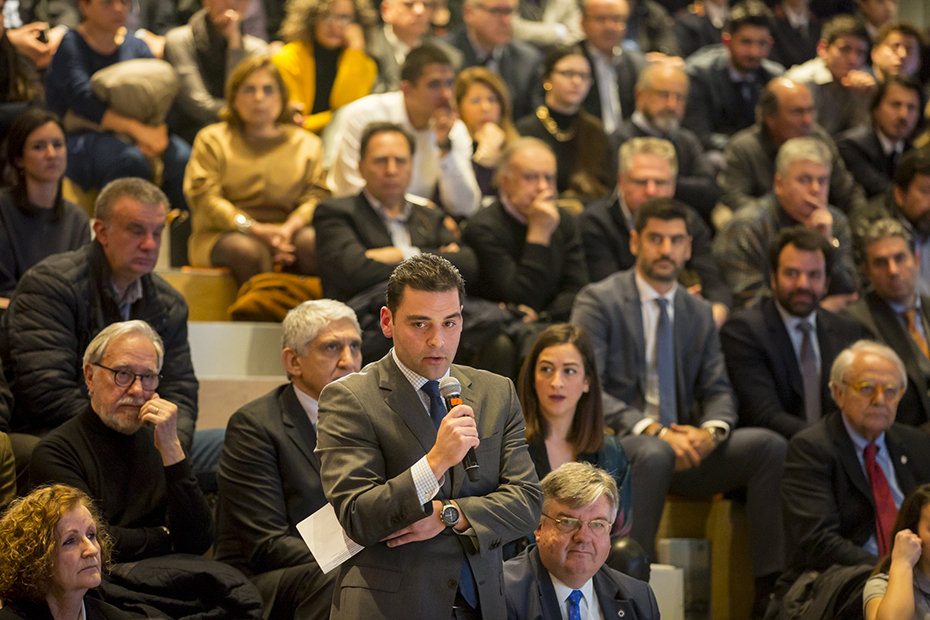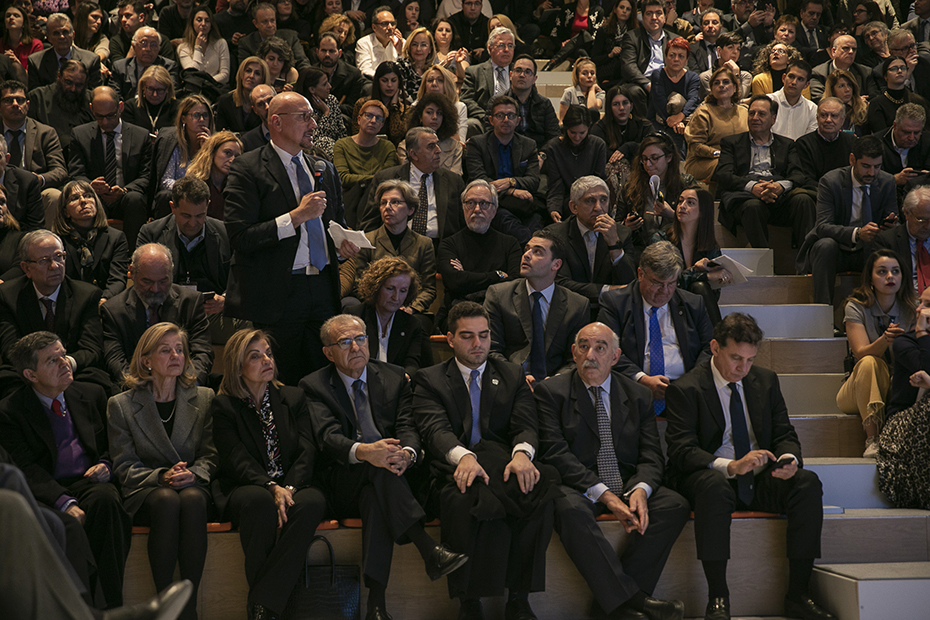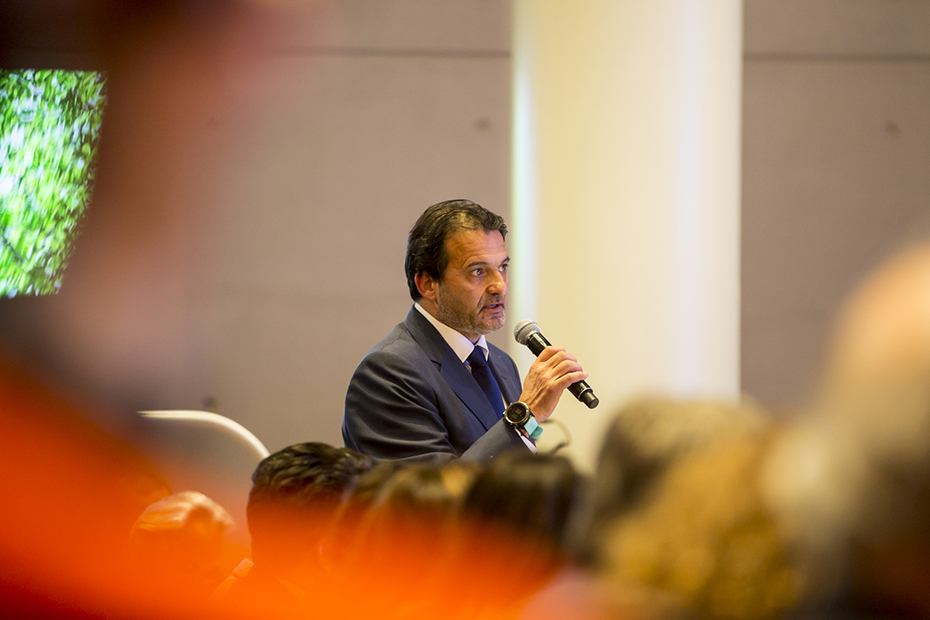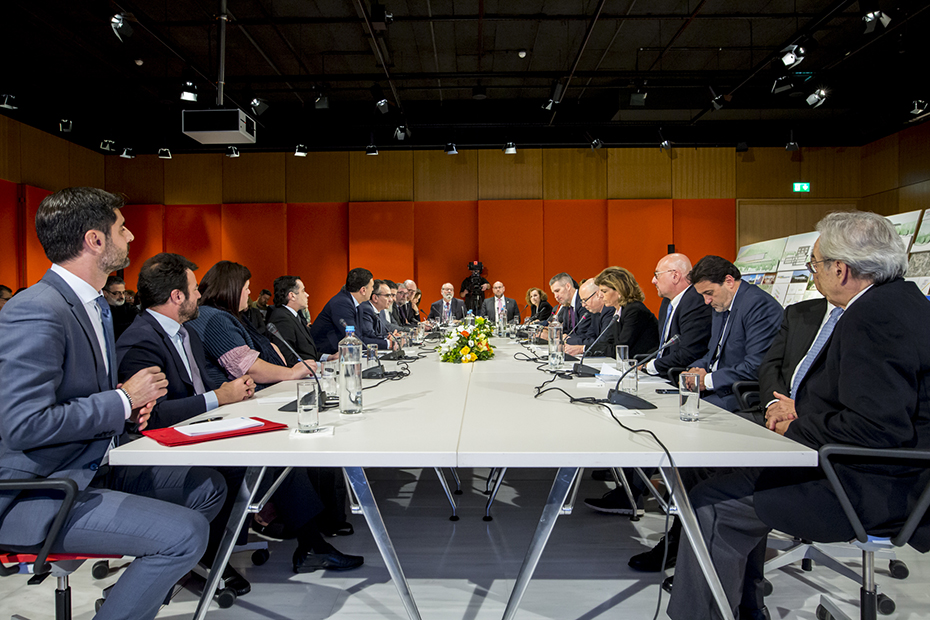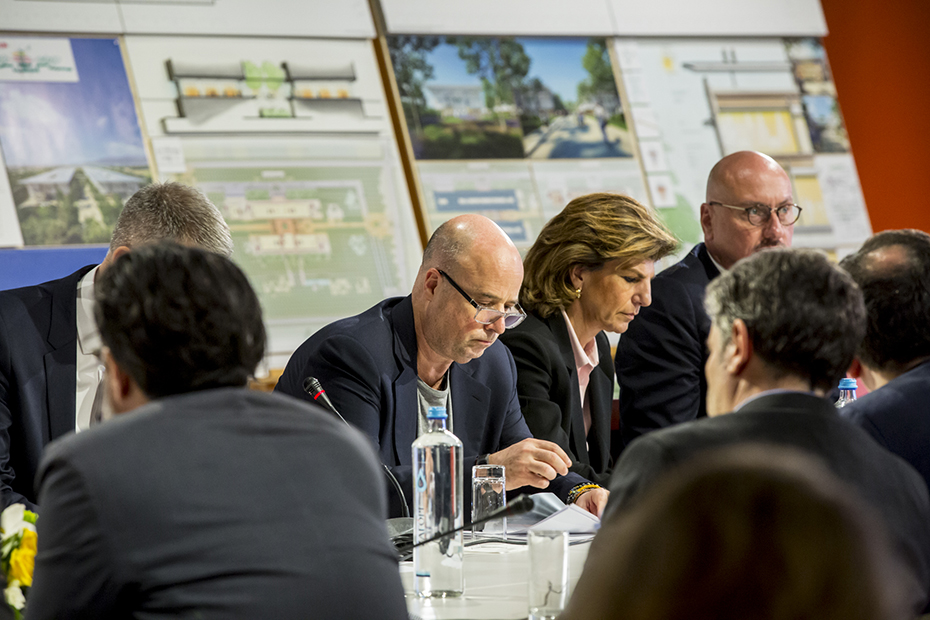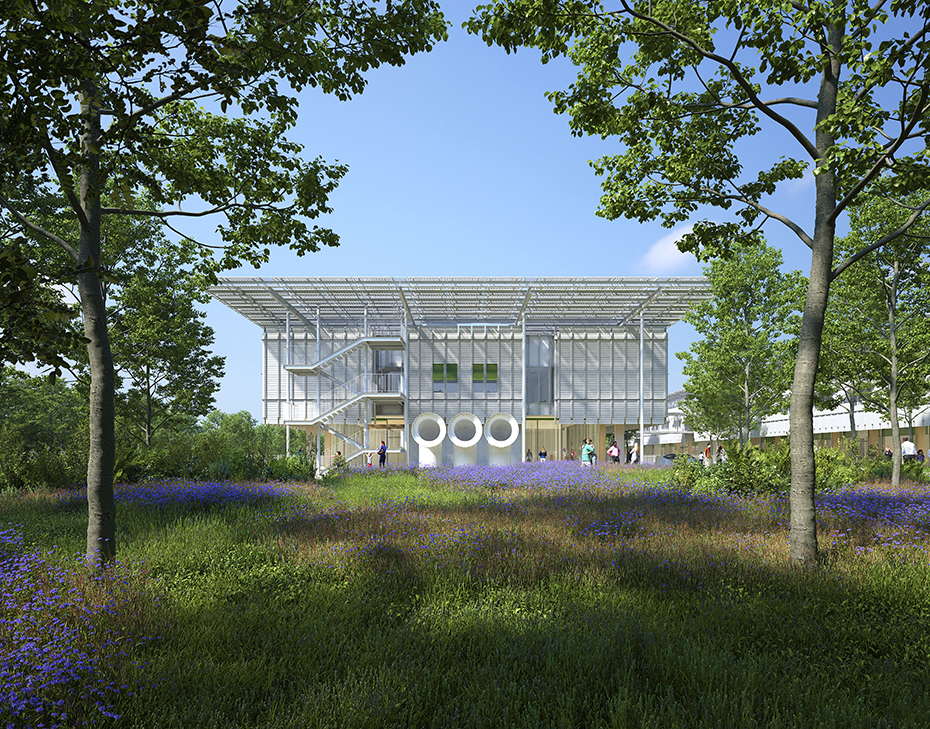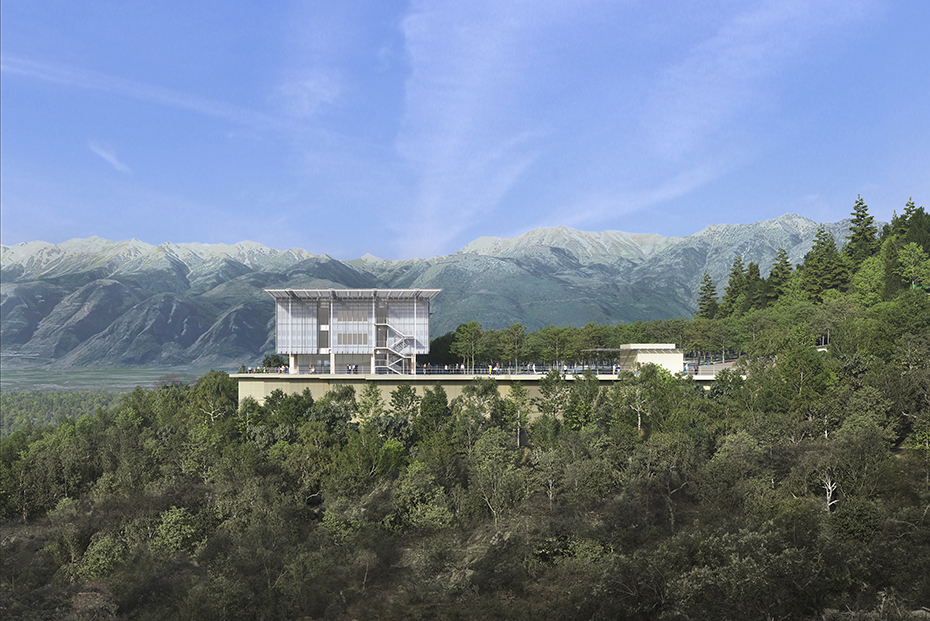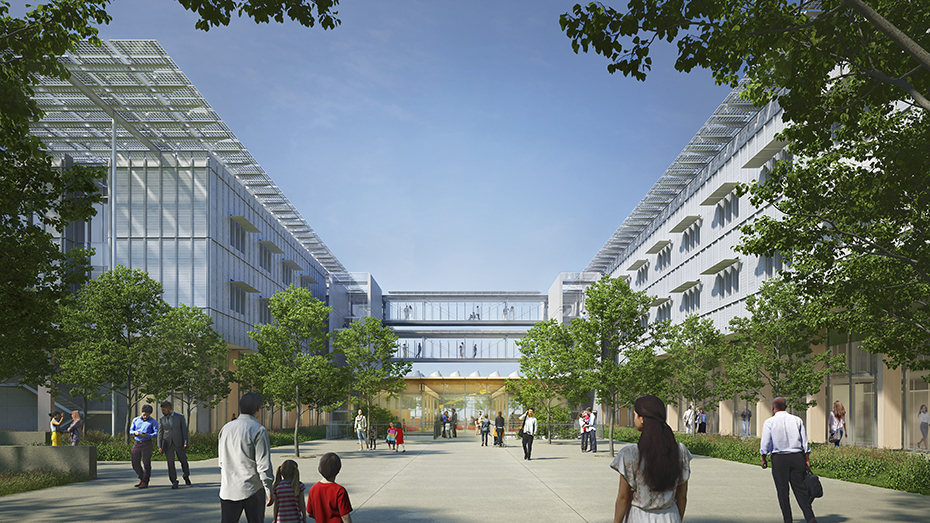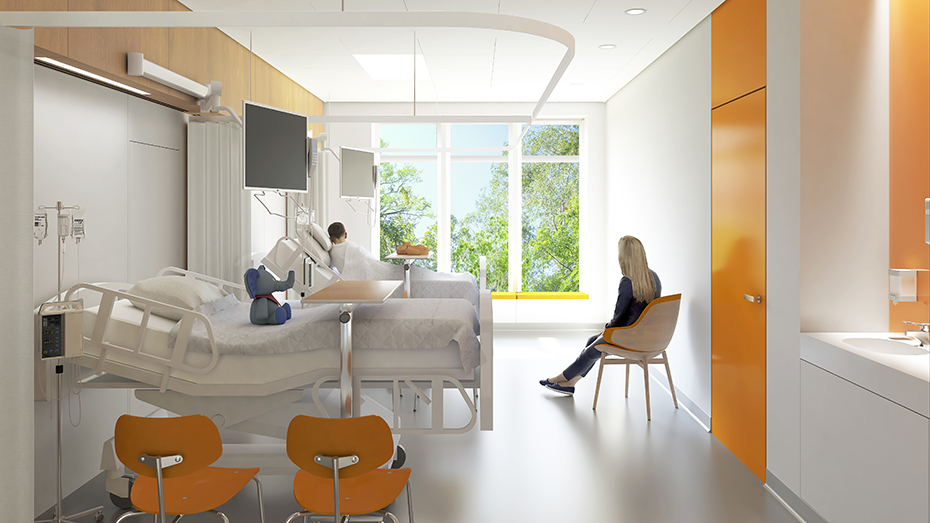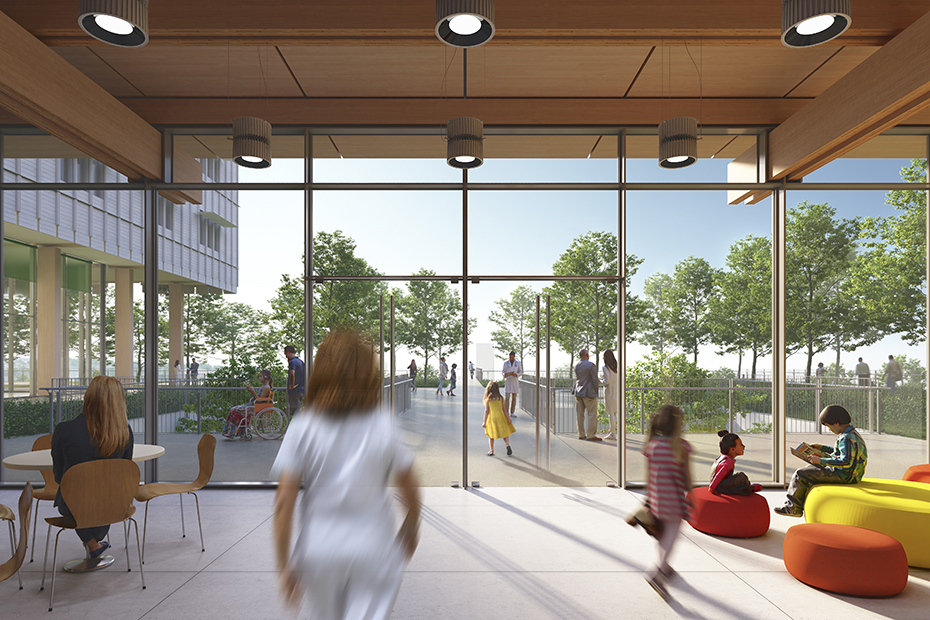Healthcare is about something more essential than hospitals and equipment. It’s about providing hope, dignity, and respect. This belief drives the Stavros Niarchos Foundation’s (SNF) vision for the health sector in Greece: to contribute and collaborate with the Greek state to offer better health services to improve lives.
To this end, since its inception in 1996, SNF has supported an extensive array of grants aimed at improving health. Two years ago, the Foundation began a major new Health Initiative, totaling more than $450 million, in collaboration with the Ministry of Health.
A discussion hosted by SNF Co-President Andreas Dracopoulos on Thursday, February 6 outlined the SNF Health Initiative’s progress to date and where it’s going from here. The event, held at the National Library of Greece at the Stavros Niarchos Foundation Cultural Center (SNFCC) in Athens, included participation by the public and by SNF partners working in the health sector.
The event was attended by the President of Greece, Prokopis Pavlopoulos and Greek Prime Minister Kyriakos Mitsotakis. Internationally-renowned architect Renzo Piano joined the discussion as a key contributor to the Health Initiative, as did Minister of Finance Christos Staikouras, Minister of Education and Religious Affairs Niki Kerameus, Minister of Health Vasilis Kikilias, and former Minister of Health, Andreas Xanthos and former Deputy Minister of Health, Pavlos Polakis.
The Health Initiative includes the construction and outfitting of three state-of-the-art new hospitals. The general hospitals in Komotini and Sparta, as well as of the SNF University Pediatric Hospital of Thessaloniki. Architect Renzo Piano presented the plans for the three hospitals and, together with SNF Co-President Andreas Dracopoulos, articulated the philosophy behind the designs. Abundant natural light and connections with nature are among the important design features he included in seeking to create optimal, dignified conditions for patient care. In a few years, parents living in Thessaloniki, Northern Greece and other regions, will no longer have to travel far from home to seek hospital care for their children, as just a few kilometers from the center of Thessaloniki will be the first public pediatric hospital outside of Attica.
The three hospitals, which will be completed by 2025, are only one component of the Health Initiative. Four new PET/CT scanners will be procured and installed at four regional hospitals around the country, increasing their availability throughout Greece and reducing patient waiting times. Evangelismos General Hospital in Athens will also be outfitted with new equipment, improving diagnostic capabilities and treatment for thousands of patients. During the event, the SNF Co-President expressed the Foundation’s intention to collaborate with two other donors, Aliki Perroti and Thanassis and Marina Martinos, to strengthen the Intensive Care Unit and the Emergency Department of Evangelismos Hospital. He stressed the importance of collaboration among organizations and between the private and the public sectors.
The Health Initiative will also support Greece’s National Center for Emergency Care (EKAV) with two new helicopters and two new medevac airplanes. These will cover the air transportation needs of patients throughout Greece and into Europe, ensuring that patients can be transported quickly from remote areas and islands where healthcare infrastructure is sparse, to hospitals where they can receive care.
A number of training and education efforts are also included in the initiative. These focus on the education of nursing students at the Nursing Schools of the Evangelismos Hospital and the National and Kapodistrian University of Athens (NKUA); the training of medical and nursing students, EKAV first responders, doctors, and surgeons in the treatment of trauma; and the training of medical personnel in the prevention of in-hospital infections. Medical experts shared the international research and practices that went into planning these and initiatives which stem from a belief that doctors and nurses, whether new to the field or seasoned professionals, should have the best possible equipment at their disposal and the most up-to-date knowledge and training.
The event concluded with the 17th Special Advisory Committee Assembly for the SNF Health Initiative, which was open to the public in the spirit of transparency that characterizes the entire endeavor. The Assembly meets monthly, convening representatives of the relevant Ministries and involved parties to coordinate and implement the projects included in the initiative.
Closing the discussion, SNF Co-President Andreas Dracopoulos said, “From Komotini to Crete and from Sparta to Anafi, our existing grants in the health field and under the umbrella of the current Health Initiative have been motivated by one simple thing: people—all of our fellow human beings. It is a holistic effort to complement the work of the Ministry of Health, covering the entire country and to meet needs at multiple levels. These individual elements build and complement one another, multiplying their overall impact on society. We are trying to do what should be self-evident: to help bring a human perspective to providing better health services.”

